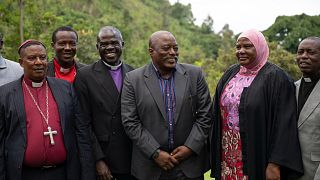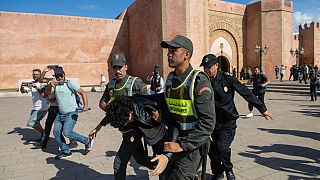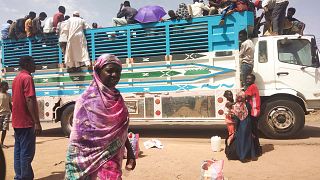Morocco
The Bird of Prey Care Centre in Bir Lahmer, Morocco is a specialist rehabilitation unit for raptors and birds of prey and every year takes care of hundreds of sick or injured birds across the country.
The centre helps to protect many of the 43 raptor species found in the country, treating injured birds and preparing them for return to the wild.
Created through a partnership between the National Agency for Water and Forests (ANEF) and the Moroccan Association for the Protection of Raptors (AMPR), the facility lies some 30 kilometres outside of Rabat and includes a park, several aviaries and a treatment unit.
The agency, which operates nationwide, is responsible for recovering injured or sick birds through its network across the country, while the association oversees their care, housing, and rehabilitation—providing necessary medical treatment before releasing them back into the wild once recovered.
"In terms of outcomes, we’ve found that about one-third of the birds we take in can be released back into the wild, thanks to veterinary treatment and rehabilitation," said Karim Rousselon chairman of the Moroccan Association for the Protection of Raptors (AMPR).
Among the birds of prey currently being treated at the center after suffering injuries or illness in the wild are a griffon vulture, a North African buzzard, several black kites, a short-toed eagle and a Spanish imperial eagle rescued in the Agadir region after injuring a wing.
But not all the birds can be released.
Some remain in the sanctuary as part of captive breeding programs, while those that cannot be saved are euthanized as a last resort.
And birds that cannot be rehabilitated may be euthanized as a last resort, Rousselon said.
Ecological balance
The center also runs "awareness campaigns about the role raptors play in maintaining ecological and natural balance," said Mohamed Bouamama, head of the wildlife unit at the National Agency for Water and Forests.
The association receives financial support from the International Union for the Conservation of Nature (IUCN), primarily used to purchase GPS tracking kits, which allow the team to monitor the birds after their release.
In Morocco, all birds of prey are legally protected: they cannot be hunted, captured or kept as pet.












01:53
WHO report finds uncontrolled hypertension puts over a billion people at risk
01:22
Cheetah cubs destined for illegal wildlife trade rescued in Somaliland
02:32
Sub-Saharan Africa faces aging crisis amid surging elderly population
01:11
Africa launches Cholera response plan as Sudan faces deadly surge
00:51
South Africa moves against rhino horn traffickers
01:00
London Zoo animals step onto scales for annual weigh-in